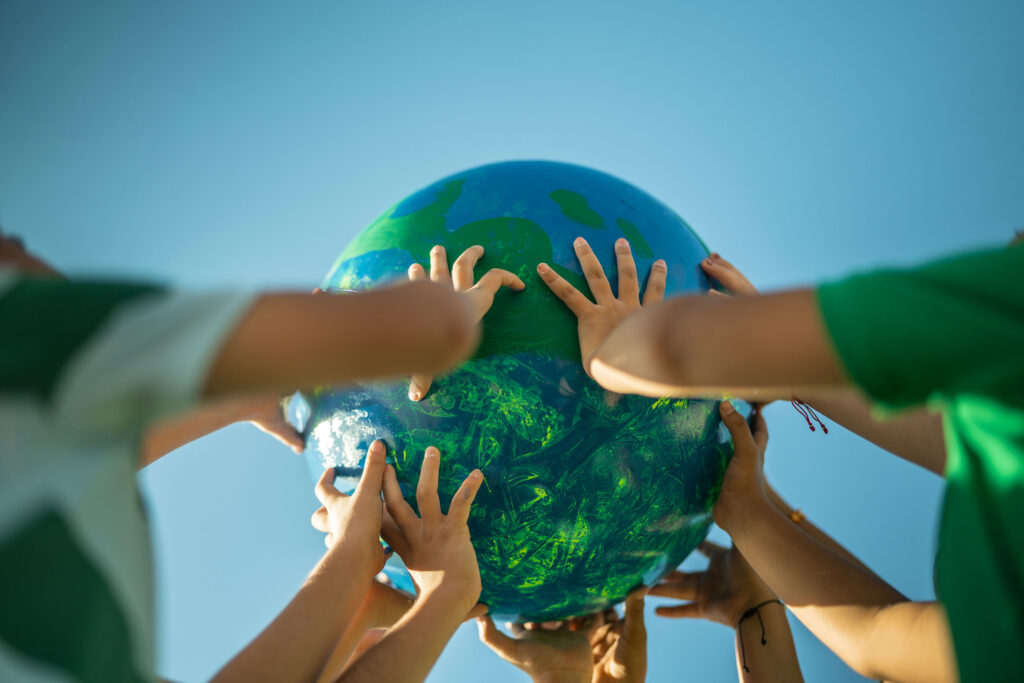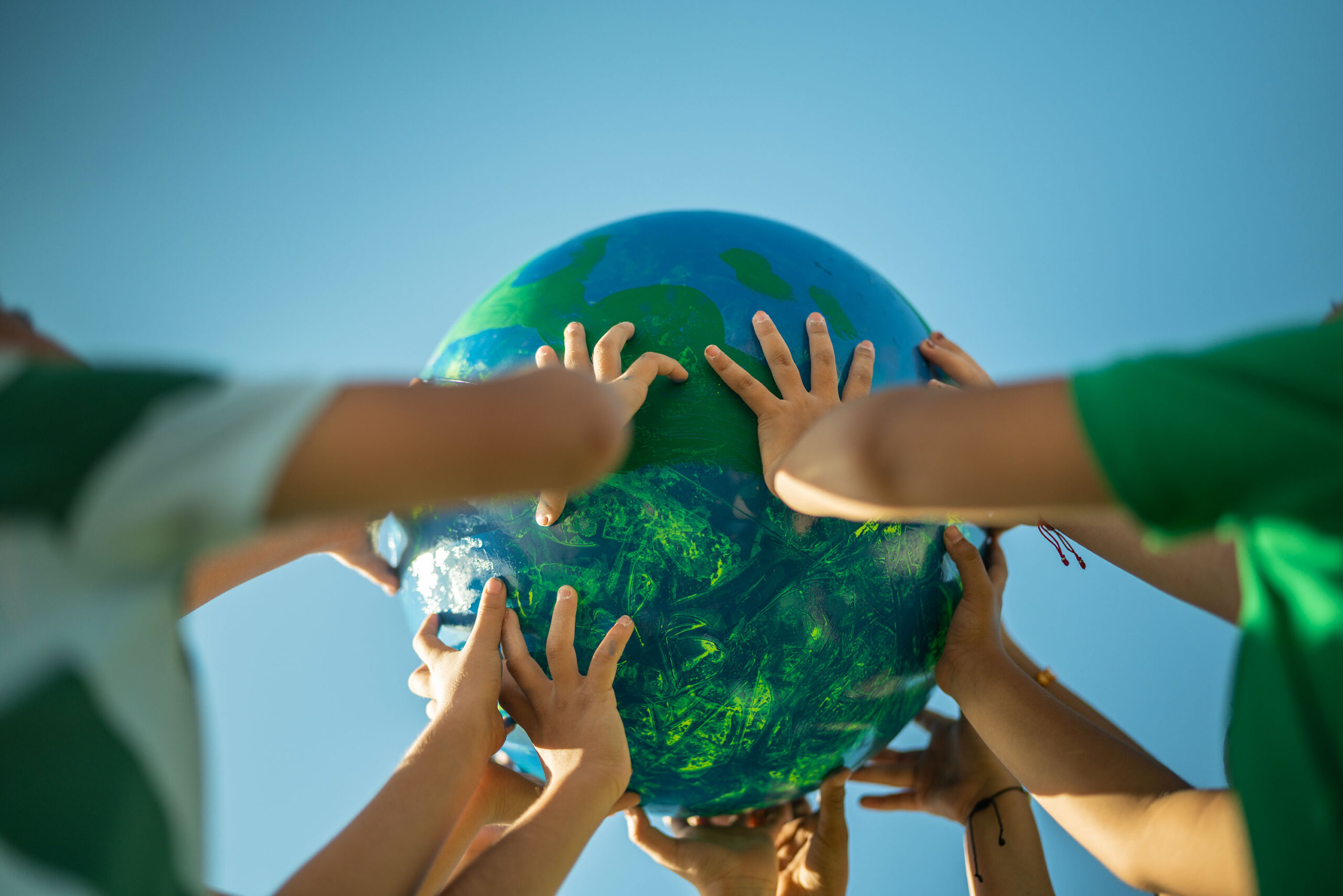As the Earth faces its greatest challenge yet, climate change is no longer a distant threat. There is urgent need for collective action to preserve our planet for future generations
By Mohammad Yasir Lone
The Earth possesses a remarkable ability to adapt to change, but human-induced factors like deforestation, land encroachment, pollution, and overexploitation of natural resources have significantly weakened this inherent resilience. To address these pressing issues and build back nature’s lost immunity, countries must prioritize implementing inclusive, cost-effective solutions that offer multifaceted benefits. Disparity in Climate Impact
One of the most critical challenges stemming from these environmental disruptions is climate change. Climate change refers to long-term alterations in temperature and weather patterns, which can be triggered by natural events like volcanic eruptions or changes in solar activity. However, human activities, particularly the burning of fossil fuels like coal, oil, and gas, have emerged as the primary driver of climate change. Greenhouse gas emissions, such as CO2, generated from these activities trap solar heat and lead to a rise in the Earth’s temperature.
The balance between incoming and outgoing energy determines the planet’s temperature. When solar energy is absorbed, the Earth heats up, but it remains stable if the energy is reflected back into space. Changes in the greenhouse effect, atmospheric reflectivity, and other factors can alter the planet’s energy balance, leading to shifts in temperature. Unfortunately, the environmental changes we are witnessing are occurring more rapidly than anticipated, and human behaviors are at the root of these alterations.
Climate change is now a major concern worldwide, with emissions from vehicles, industries, and the increased use of fossil fuels contributing to air pollution and further exacerbating the Earth’s rising temperatures. The impacts of human-induced climate change are being felt most acutely by the world’s poorest nations, posing a significant threat to ecosystems and cultures across the globe. Melting glaciers, rising sea levels, landslides, and an increase in earthquake frequency are some of the disastrous effects of climate change.

A key driver of greenhouse gas emissions is CO2, which accounts for 95% of all transportation-related emissions in the United States. The burning of fossil fuels releases ancient carbon into the atmosphere at an unprecedented rate, leading to the highest CO2 levels in at least three million years. This alarming concentration of CO2 is rising faster than at the conclusion of the last ice age, underscoring the urgency of the issue. Human reliance on fossil fuels and greenhouse gas emissions since the Industrial Revolution is undeniably contributing to the current warming of the planet.
The consequences of climate change will be severe unless urgent action is taken. If current trends continue, heat waves in the Middle East and South Asia will become unbearable, and regions like Southern Africa, the Mediterranean, and Central America will face devastating droughts. Rising sea levels will threaten island nations and low-lying areas, causing significant environmental and societal impacts.
The severity of these consequences depends on how earnestly we address climate change. Swift and decisive action is needed to mitigate the impacts and build a sustainable future for generations to come. Failure to act will lead to irreversible damage, making climate change the most urgent threat humanity has ever faced.
The effects of climate change are no longer confined to recent temperature increases and catastrophic weather events; they now permeate every aspect of human existence. Human activities are driving global temperatures upward, increasing the likelihood of heatwaves, droughts, and floods. Climate change exacerbates natural droughts, mainly through increased evaporation, but the scale of the problem has reached alarming proportions due to human-induced factors.
Visual evidence of climate change abounds, with shifting rainfall patterns, erratic heatwaves, and rising sea levels becoming apparent to all. The shrinking ice sheets and glaciers are undeniable signs of environmental shifts. The ecological destruction and overuse of resources have escalated drastically over the past decades, with deforestation being a major concern. Trees play a crucial role in stabilizing the Earth’s temperature and providing oxygen and essential resources, making their widespread loss a grave threat to our climate.
Global change is quickly becoming a potential source of conflict, both domestically and internationally, as nations grapple with determining responsibility, the cost of response, and dispute resolution. If global warming continues unchecked, catastrophic consequences loom, including increased droughts, rising sea levels, and a mass extinction of species.
Scientists predict a potential rise of up to 4 degrees Celsius in global warming if no action is taken. This could lead to severe heatwaves, widespread displacement due to rising sea levels, and the irrevocable extinction of numerous plant and animal species. Developing countries, with fewer resources to adapt, are likely to bear the brunt of the suffering despite contributing the least to greenhouse gas emissions.
India, China, and Pakistan, among others, have already experienced the harsh realities of climate change. Devastating heatwaves, floods, and droughts have plagued these nations, making survival more challenging for both humans and terrestrial animals seeking food and water.
To address this pressing global dilemma, a comprehensive strategy for development planning is essential. Historical remedies may not suffice for the complexities of new climate-related challenges. Solutions must acknowledge the interconnected nature of climate change issues, recognizing that actions taken in one area may impact others.
Combatting climate change is an immense challenge that demands collective effort. Moving towards alternative energy sources and improving public transportation are steps that individuals can take to reduce their impact on the planet. Additionally, enhancing vehicle economy, implementing social forestry, and reducing fuel carbon content are other viable strategies to curb greenhouse gas emissions from transportation.
It is critical to recognize that unmanaged climate change will exacerbate existing disparities, disproportionately affecting poorer nations, even though they contribute less to warming gases. Many underdeveloped countries are located in tropical regions where further warming could render living conditions intolerable.
While climate change poses a grave threat, we are not powerless. Collective action is crucial to halt climate change and preserve the planet for future generations. Every individual’s contribution counts, making it imperative to act now and prioritize the well-being of our environment.
The views expressed in this article are solely those of the author and do not necessarily reflect the opinions or views of this newspaper


Comments are closed.